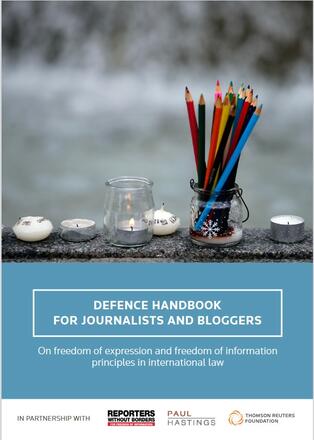
The right to freedom of expression is enshrined in all major international human rights instruments, starting with the Universal Declaration of Human Rights. The exercise of this right and the activity of journalism, whether by professional or non-professional journalists, however, sometimes leads to prosecution, judicial harassment, arbitrary detention, or worse. How can journalists be protected in the face of such dangers? The answer lies in the law. Journalists operate within an international legal framework which protects their rights to freedom of expression and freedom of information, meaning that governments can be held to account. The right to freedom of expression can be limited, however, and so this Handbook also looks at how freedom of expression can be restricted in specific circumstances and how it is balanced with other rights, such as the right to privacy.
It includes decisions and recommendations made by international and regional bodies and courts in relation to various aspects of freedom of speech, including: international sources of law giving rise to freedom of expression and freedom of information principles; defamation; the right to privacy; protection of public order and morality; and national security and state secrets.
Tags: SLAPP Media LawThe content of this article can be used according to the terms of Creative Commons: Attribution-NonCommercial 4.0 International (CC BY-NC 4.0) . To do so use the the wording "this article was originally published on the Resource Centre on Media Freedom in Europe" including a direct active link to the original article page.

